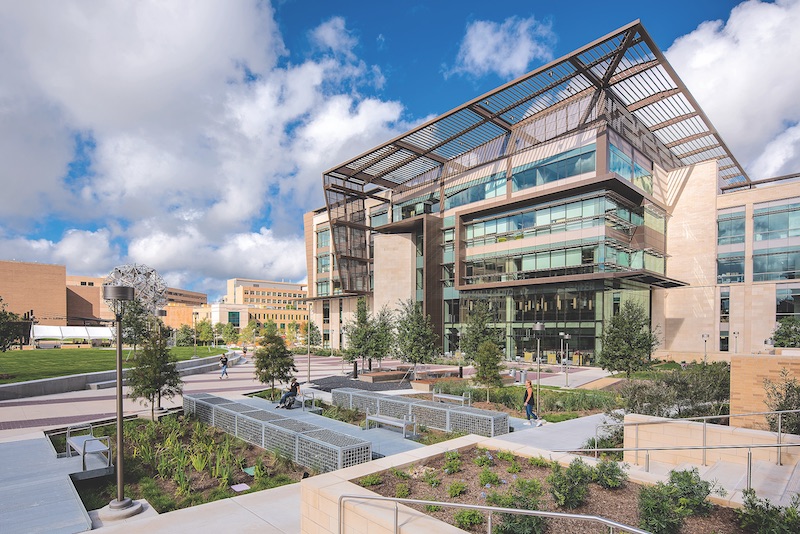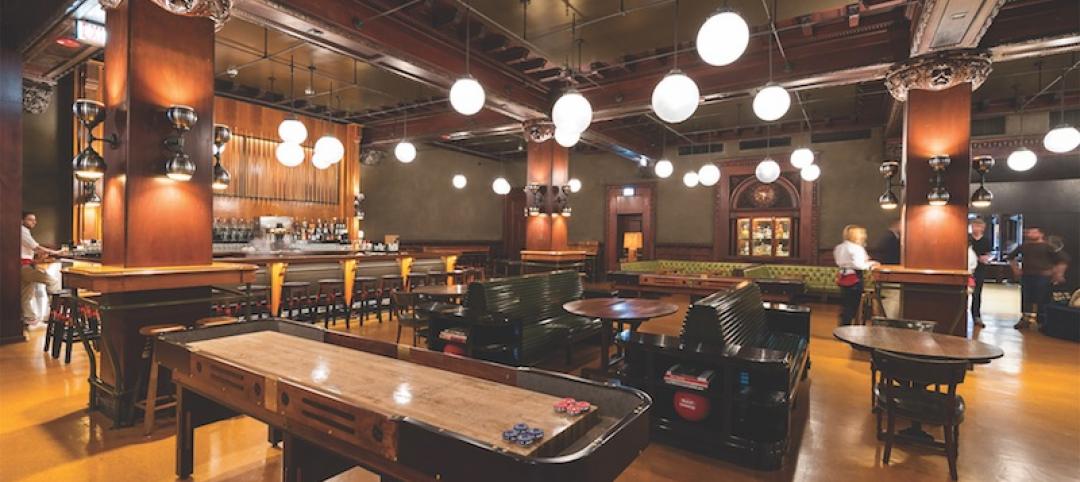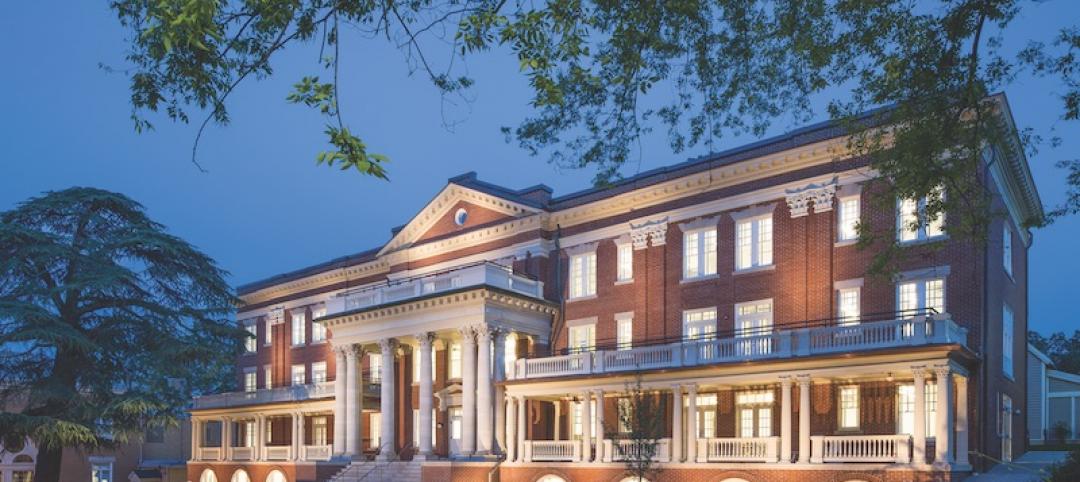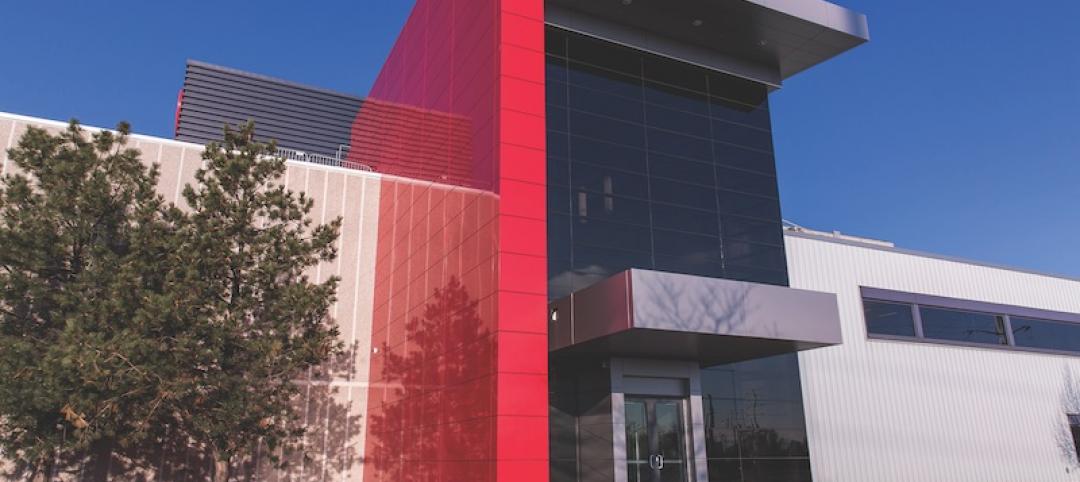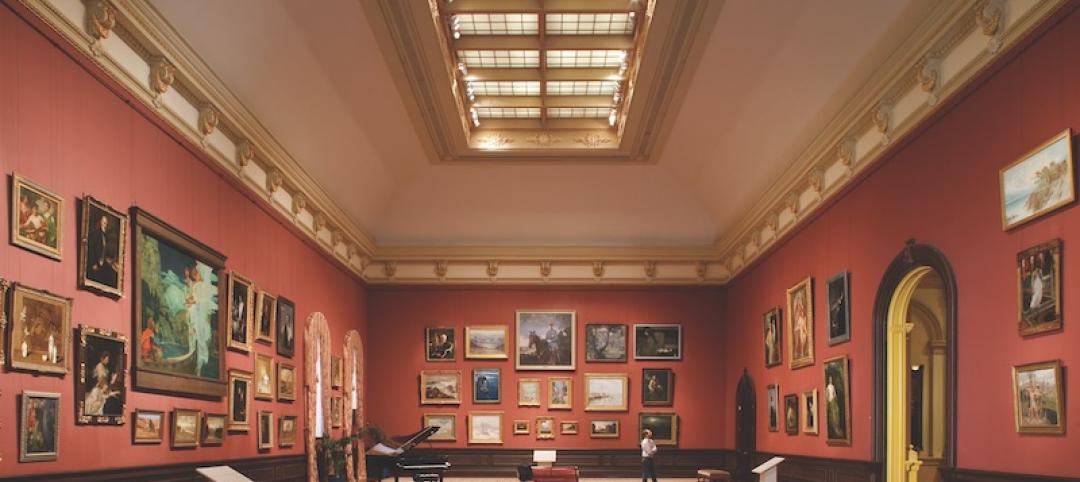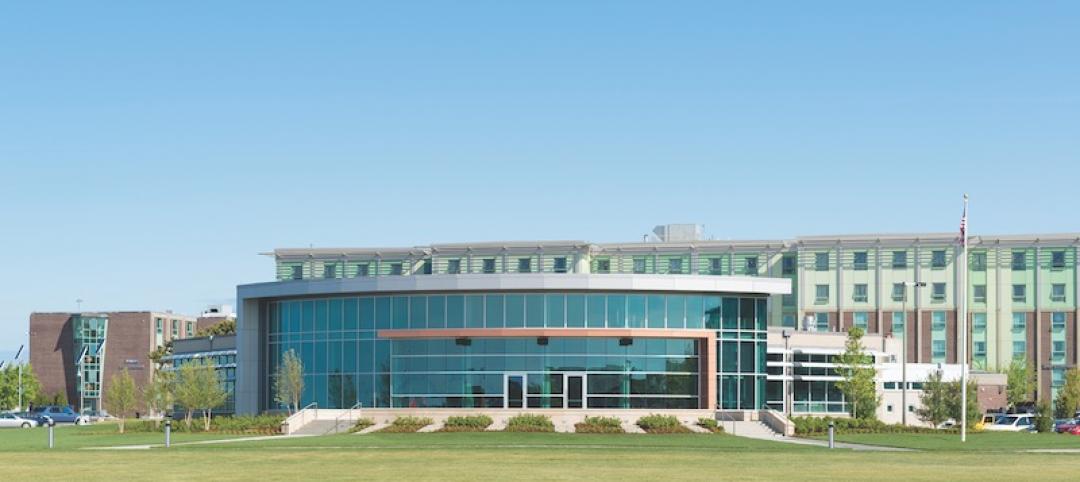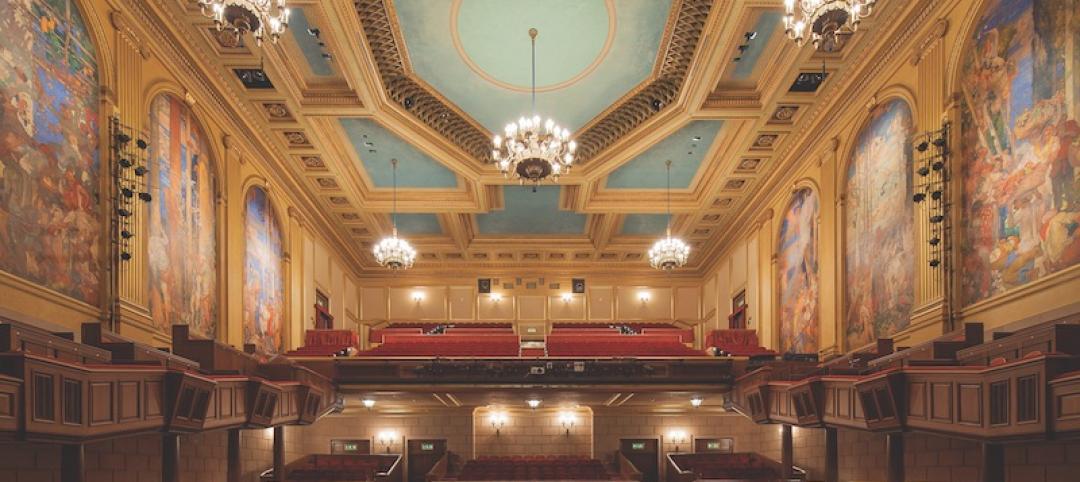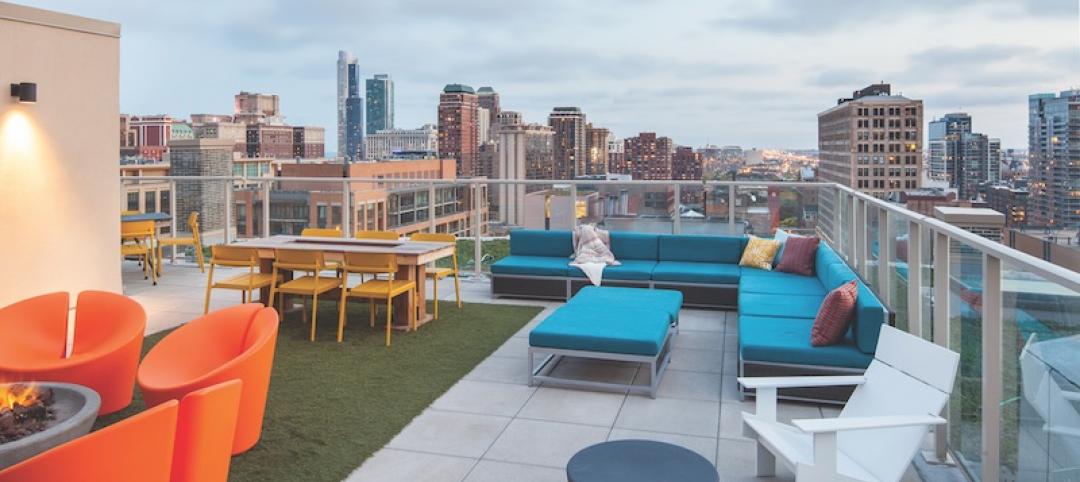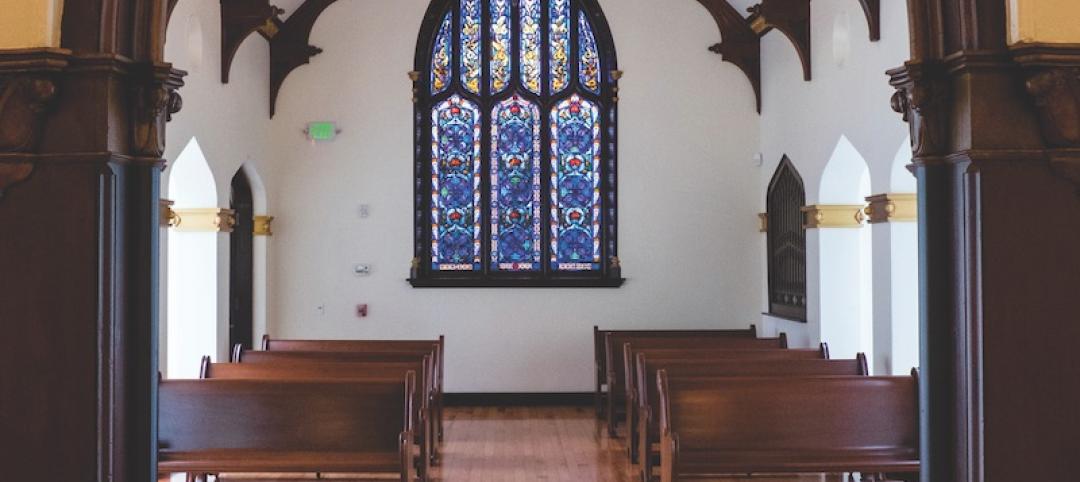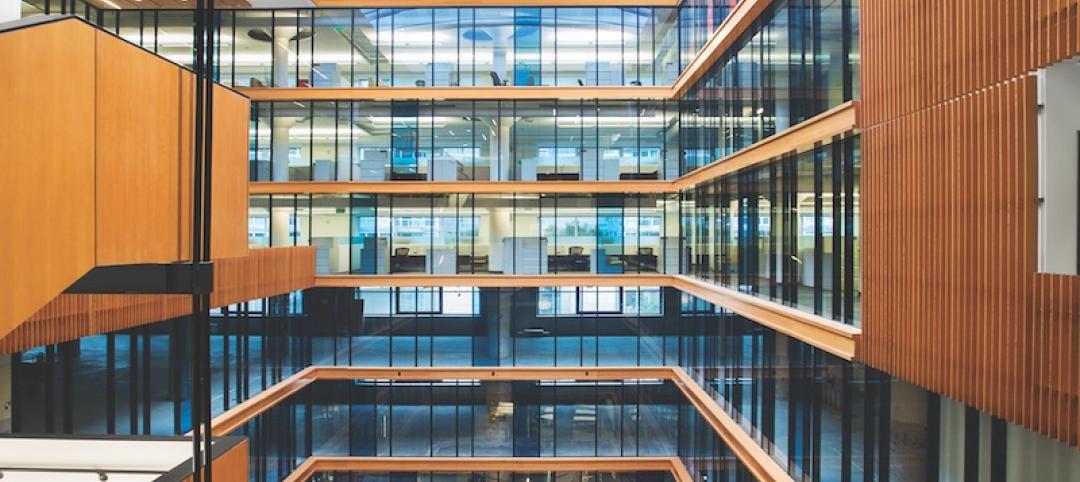In 2013, Texas A&M University College of Engineering launched its “25 by 25 initiative,” whose goal is to more than double its enrollment to 25,000 students by 2025 without incurring significant infrastructure costs. All this while simultaneously creating a 21st-century engineering education model focused on technology-enabled learning, hands-on projects, and collaborative and multidisciplinary learning spaces.
The first step was the renovation and expansion of the old Zachry building, a 1970s-era precast box. The revivified structure, now the largest academic building on campus, has become a gateway that has added two five-story additions totaling 225,000 sf. Its common labs have open floor plans organized by themes rather than by standalone departments.
To make the building look like new construction, the project team, led by architect TreanorHL, removed the entire load-bearing precast concrete façade. Permanent steel framing was installed prior to removal, which eliminated the need for about 90% of temporary shoring. The team also reused 80% of materials from the original structure.
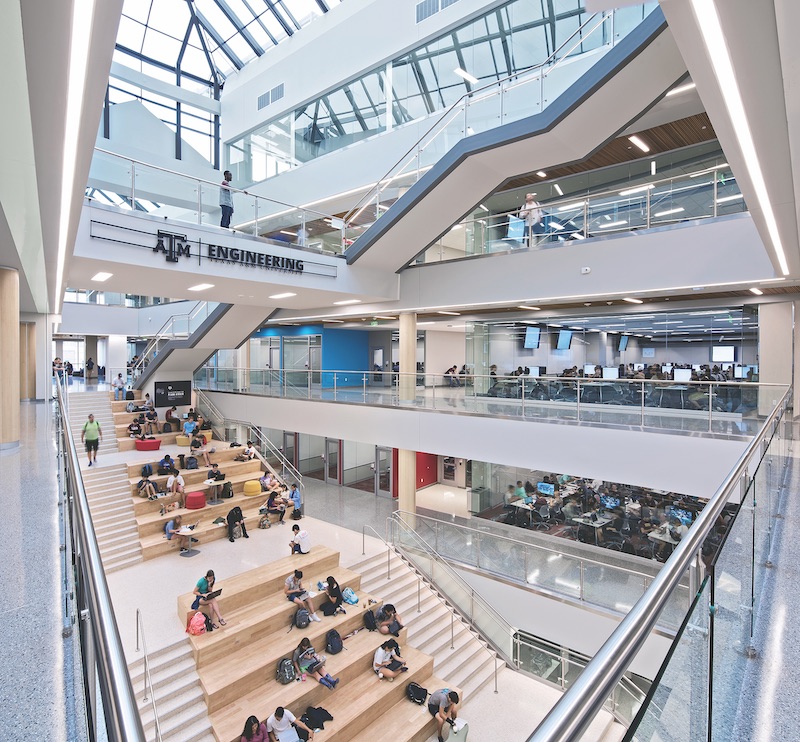 The atrium and staircase are activated by natural light, flexible seating, glass walls, and a skylight.
The atrium and staircase are activated by natural light, flexible seating, glass walls, and a skylight.
Visual transparency into the learning studios, labs, maker spaces, and outdoor green spaces activates the building’s interior. A new central atrium connects a learning staircase and a 165-foot-long, 3,500-sf split-level skylight that runs down the atrium’s spine.
To support new ways of learning and instruction, the design team collaborated with a national furniture manufacturer to develop custom group tables whose monitors can be raised and lowered on demand. Users can switch between tables and displays to selectively share and display inputs from any point in the room, from distance learning, and via interactive touchscreens (T1V) in each learning studio. These components and concepts were tested in an offsite prototype classroom prior to installation.
The Zachry Engineering Education Complex received the Gold Medal Engineering Excellence Award and the Eminent Conceptor Award from the American Council of Engineering.
GOLD AWARD WINNER
BUILDING TEAM TreanorHL (submitting firm, architect) Texas A&M University (owner/developer) JQ Infrastructure (SE, CE) Shah Smith & Associates (MEP) Coleman & Associates (landscape architect) Vaughn Construction (GC, CM) DETAILS 530,000 sf Total cost $171 million Construction time August 2016 to July 2018 Delivery method CM at risk
Related Stories
Reconstruction Awards | Nov 16, 2016
BD+C's 2016 Reconstruction Award Winners
St. Patrick’s Cathedral, Lovejoy Wharf, and the Bay Area Metro Center are just a few of the projects recognized as 2016 Reconstruction Award winners.
Reconstruction Awards | Nov 16, 2016
Reconstruction Awards: The Renwick Gallery of The Smithsonian American Art Museum
The renovation restored two long-concealed vaulted ceilings in the second-floor galleries and recreated the original 19th-century window configuration.
Reconstruction Awards | Nov 16, 2016
Reconstruction Awards: Massachusetts Maritime Academy
The two-story “overbuild” employed block and plank construction with drag strut detailing to connect it to the existing building.
Reconstruction Awards | Nov 16, 2016
Reconstruction Awards: The Masonic Temple
The building team suspended a new eighth-floor mezzanine and added 18 9x15-foot windows to the north, south, and west façades.
Reconstruction Awards | Nov 16, 2016
Reconstruction Awards: San Francisco War Memorial Veterans Building
The building team used a system of rocking concrete shear walls, which eliminated the need for deep foundations and reduced the shear force on each wall.
Reconstruction Awards | Nov 16, 2016
Reconstruction Awards: Arc at Old Colony
The Arc at Old Colony's vintage floor plans, voluminous lobby, and myriad elevators were perfect for redevelopment as a historically charming residential building.
Reconstruction Awards | Nov 16, 2016
Reconstruction Awards: Noble Chapel
In May 2013 the 124-year-old Noble Chapel, suffered a three-alarm fire that almost completely destroyed its 1937 crematorium.
Reconstruction Awards | Nov 16, 2016
Reconstruction Awards: Bay Area Metro Center
The structure’s 60,000-sf floor plates made the interior dark and foreboding, and BAHA wanted to improve working conditions for its employees and tenants.


